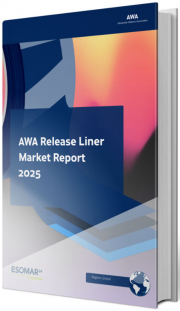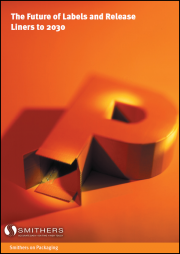
|
시장보고서
상품코드
1899950
박리 라이너 시장 규모, 점유율, 성장 분석 : 유형별, 소재별, 라벨링 기술별, 용도별, 최종사용자별, 지역별 - 업계 예측(2026-2033년)Release Liners Market Size, Share, and Growth Analysis, By Type (Paper, film and Others.), By Material (Silicon, Non-Silicone), By Labelling Technology, By Application, By End - use, By Region - Industry Forecast 2026-2033 |
||||||
박리 라이너 시장 규모는 2024년에 131억 6,000만 달러로 평가되었으며, 2025년 137억 1,000만 달러에서 2033년까지 190억 6,000만 달러로 성장할 전망입니다. 예측 기간(2026-2033년) 동안 CAGR은 4.2%로 예측됩니다.
세계 박리 라이너 시장은 감압성 라벨에 대한 수요 증가, 포장 산업 확대, 의료 분야의 기술 혁신에 힘입어 견고한 성장세를 보이고 있습니다. 이 시장을 이끄는 주요 요인은 식품, 음료, 의약품, 물류 분야에서 널리 사용되는 감압식 라벨에 대한 수요가 급증하고 있기 때문입니다. 이러한 라벨은 효과적인 부착 및 제거를 위해 박리 라이너에 의존하고 있습니다. 제품 정보 및 브랜딩에 대한 소비자의 인식이 높아지면서 이러한 수요를 더욱 증폭시키고 있습니다. 또한, 포장 산업이 제품의 보호성, 편의성, 미적 감각을 중시하는 방향으로 진화함에 따라 혁신적인 포장 솔루션이 주목받고 있습니다. 또한 E-Commerce의 번영과 온라인 쇼핑의 급격한 성장 추세는 안전하고 효율적인 포장에 대한 필요성을 높이고 있으며, 이는 박리 라이너 시장에 큰 혜택을 가져다주고 있습니다.
박리 라이너 시장 촉진요인
박리 라이너 시장의 성장은 주로 포장 기술의 지속적인 혁신에 의해 주도되고 있습니다. 첨단 감압 접착제 및 특수 박리 라이너 코팅의 도입은 박리 라이너의 기능과 성능을 향상시킴으로써 시장에 큰 이점을 가져다주었습니다. 이러한 기술 발전은 업무 효율을 높이는 동시에 보다 지속가능한 포장 솔루션을 제공하는 데 기여합니다. 그 결과, 포장 기술의 발전은 다양한 산업에서 성능과 지속가능성을 우선순위로 삼는 다양한 산업에서 박리 라이너에 대한 견고한 수요를 창출하고 있습니다. 이러한 역동적 인 환경은 박리 라이너 시장의 미래에 대한 유망한 전망을 형성하고 있습니다.
박리 라이너 시장 억제요인
박리 라이너 시장은 라이너리스 라벨, 포장재에 직접 인쇄, 다양한 혁신적 접착 솔루션 등 다양한 대체 제품과의 치열한 경쟁에 직면해 있습니다. 이러한 대체품은 저비용, 맞춤형 고도화, 지속가능성 향상 등 뚜렷한 이점을 가지고 있습니다. 이러한 대체품의 존재는 고객이 각 옵션의 장점과 적합성을 비교 검토하는 과정에서 기존 박리 라이너 분야에 도전이 되고 있습니다. 경쟁력을 유지하기 위해 박리 라이너 제조업체는 제품을 효과적으로 차별화하고, 시장에서 소비자의 변화하는 취향과 요구에 부합하는 고유한 가치 제안을 강조해야 합니다.
박리 라이너 시장 동향
세계 박리 라이너 시장을 형성하는 두드러진 추세 중 하나는 지속가능하고 친환경적인 솔루션에 대한 수요 증가입니다. 환경에 대한 인식이 높아짐에 따라 제조업체들은 효율성뿐만 아니라 생태계에 미치는 영향을 최소화하는 박리 라이너 개발에 주력하고 있습니다. 이러한 지속가능성으로의 전환은 재활용 가능한 라이너, 바이오 기반 소재, 탄소발자국을 줄이기 위한 제조 공정 등의 혁신을 가져왔습니다. 기업들은 소비자의 지속가능성에 대한 선호에 부합하는 것이 중요하다는 것을 인식하고 있으며, 친환경적 노력을 촉진하는 규제 혜택의 혜택을 받는 것이 중요하다는 것을 인식하고 있습니다. 그 결과, 시장에서는 책임감 있는 소비자의 진화하는 기대에 부응하기 위해 친환경 제품을 우선시하는 플레이어가 증가하고 있으며, 눈에 띄는 변화가 진행 중입니다.
자주 묻는 질문
목차
소개
- 조사 목적
- 조사 범위
- 정의
조사 방법
- 정보 조달
- 2차와 1차 데이터 방법
- 시장 규모 예측
- 시장 가정과 제한
주요 요약
- 세계 시장 전망
- 공급과 수요 동향 분석
- 부문별 기회 분석
시장 역학과 전망
- 시장 규모
- 시장 역학
- 성장 촉진요인과 기회
- 성장 억제요인과 과제
- Porters 분석과 영향
주요 시장 인사이트
- 핵심성공요인
- 경쟁 정도
- 주요 투자 기회
- 시장 생태계
- 기술적 진보
- 규제 상황
- 밸류체인 분석
- 사례 연구 분석
- 고객과 구매 기준 분석
- PESTEL 분석
- 거시경제 지표
- 스타트업 분석
- 시장 매력 지수
- 원재료 분석
- 공급망 분석
- 가격 분석
세계의 박리 라이너 시장 규모 : 유형별 & CAGR(2026-2033년)
- 종이
- 필름
- 기타
세계의 박리 라이너 시장 규모 : 용도별 & CAGR(2026-2033년)
- 점착 테이프
- 라벨
- 그래픽 필름
- 위생용품
- 산업용
- 기타 용도
세계의 박리 라이너 시장 규모 : 소재별 & CAGR(2026-2033년)
- 실리콘
- 비실리콘
세계의 박리 라이너 시장 규모 : 라벨링 기술별 & CAGR(2026-2033년)
- 감압 접착식
- 접착제 도포식
- 슬리브
- 인몰드
세계의 박리 라이너 시장 규모 : 용도별 & CAGR(2026-2033년)
- 포장
- 의료 분야
- 전자기기
- 자동차
- 기타
세계의 박리 라이너 시장 규모 : 지역별 & CAGR(2026-2033년)
- 북미
- 미국
- 캐나다
- 유럽
- 영국
- 독일
- 스페인
- 프랑스
- 이탈리아
- 기타 유럽
- 아시아태평양
- 중국
- 인도
- 일본
- 한국
- 기타 아시아태평양
- 라틴아메리카
- 브라질
- 기타 라틴아메리카
- 중동 및 아프리카
- GCC 국가
- 남아프리카공화국
- 기타 중동 및 아프리카
경쟁 정보
- 상위 5개사의 비교
- 주요 기업의 시장 포지셔닝(2025년)
- 주요 시장 기업이 채용한 전략
- 최근의 시장 동향
- 기업의 시장 점유율 분석(2025년)
- 주요 기업 개요
- 기업 상세
- 제품 포트폴리오 분석
- 기업 부문별 점유율 분석
- 매출 전년비 비교(2021-2023년)
주요 기업 개요
- 3M Company(US)
- Loparex Holding B.V.(Netherlands)
- Mondi Group(United Kingdom)
- UPM Raflatac(Finland)
- LINTEC Corporation(Japan)
- Avery Dennison Corporation(US)
- Ahlstrom-Munksjo(Finland)
- Gascogne Group(France)
- Siliconature S.p.A.(Italy)
- Polyplex Corporation Ltd.(India)
- Adhesives Research, Inc.(US)
- Sappi Limited(South Africa)
- Yupo Corporation(Japan)
- Chase Corporation(US)
- Technicote Inc.(US)
- Dow
- Felix Schoeller
- Elkem ASA
- Nitto Denko Corporation
- Laufenberg GmbH
결론과 제안
KSM 26.01.19Release Liners Market size was valued at USD 13.16 Billion in 2024 and is poised to grow from USD 13.71 Billion in 2025 to USD 19.06 Billion by 2033, growing at a CAGR of 4.2% during the forecast period (2026-2033).
The global release liners market is on a robust growth trajectory, propelled by increasing demand for pressure-sensitive labels, expansion in the packaging industry, and innovations within the healthcare sector. A key factor driving this market is the surge in demand for pressure-sensitive labels, widely utilized across food, beverage, pharmaceuticals, and logistics sectors. These labels rely on release liners for effective application and removal. Heightened consumer awareness regarding product information and branding has further amplified this demand. Additionally, as the packaging industry evolves to emphasize product protection, convenience, and aesthetics, innovative packaging solutions are gaining traction. The flourishing e-commerce landscape and the burgeoning trend of online shopping also enhance the need for secure and efficient packaging, significantly benefiting the release liners market.
Top-down and bottom-up approaches were used to estimate and validate the size of the Release Liners market and to estimate the size of various other dependent submarkets. The research methodology used to estimate the market size includes the following details: The key players in the market were identified through secondary research, and their market shares in the respective regions were determined through primary and secondary research. This entire procedure includes the study of the annual and financial reports of the top market players and extensive interviews for key insights from industry leaders such as CEOs, VPs, directors, and marketing executives. All percentage shares split, and breakdowns were determined using secondary sources and verified through Primary sources. All possible parameters that affect the markets covered in this research study have been accounted for, viewed in extensive detail, verified through primary research, and analyzed to get the final quantitative and qualitative data.
Release Liners Market Segments Analysis
Global Release Liners Market is segmented by Type, by Application, by End User and by Region. Based Type, the market is segmented into Paper, film and Others. Based on Material, the market is segmented into Silicon, Non-Silicone. Based on Labelling Technology, the market is segmented into Pressure-sensitive, Glue Applied, Sleeving, In-mold. Based on Application, the market is segmented into Pressure-sensitive Tapes, Labels, Graphic Films, Hygiene, Industrial and Other Applications. Based on End User, the market is segmented into Packaging, Medical, Electronics, Automotive and Others. Based on region, the market is segmented into North America, Europe, Asia Pacific, Latin America and Middle East & and Africa.
Driver of the Release Liners Market
The growth of the release liners market is largely fueled by ongoing innovations in packaging technology. The introduction of advanced pressure-sensitive adhesives and specialized release liner coatings has greatly benefited the market by improving the functionality and performance of release liners. These technological enhancements contribute to greater operational efficiency while also offering more sustainable packaging solutions. Consequently, the advancements in packaging technology are creating a robust demand for release liners, as they address both performance and sustainability priorities within various industries. This dynamic environment is shaping a promising landscape for the future of the release liners market.
Restraints in the Release Liners Market
The release liners market encounters significant competition from a range of alternative products, including linerless labels, direct printing on packaging materials, and various innovative adhesive solutions. These alternatives present distinct advantages, such as lower costs, enhanced customization, and better sustainability features. The presence of these substitutes creates challenges within the traditional release liners sector, as customers weigh the benefits and suitability of each option. To stay competitive, manufacturers of release liners must effectively differentiate their offerings, emphasizing their unique value propositions in order to align with the changing preferences and demands of consumers in the market.
Market Trends of the Release Liners Market
A prominent trend shaping the global release liners market is the escalating demand for sustainable and eco-friendly solutions. As environmental awareness intensifies, manufacturers are increasingly focusing on the development of release liners that are not only efficient but also minimize ecological impact. This shift towards sustainability has led to innovations such as recyclable liners, bio-based materials, and production processes designed to reduce carbon footprints. Companies recognize the importance of aligning with consumers' sustainability preferences and benefitting from regulatory incentives that promote green practices. Consequently, the market is witnessing a notable transformation as players prioritize eco-conscious products to meet the evolving expectations of responsible consumers.
Table of Contents
Introduction
- Objectives of the Study
- Scope of the Report
- Definitions
Research Methodology
- Information Procurement
- Secondary & Primary Data Methods
- Market Size Estimation
- Market Assumptions & Limitations
Executive Summary
- Global Market Outlook
- Supply & Demand Trend Analysis
- Segmental Opportunity Analysis
Market Dynamics & Outlook
- Market Overview
- Market Size
- Market Dynamics
- Driver & Opportunities
- Restraints & Challenges
- Porters Analysis & Impact
- Competitive rivalry
- Threat of substitute
- Bargaining power of buyers
- Threat of new entrants
- Bargaining power of suppliers
Key Market Insights
- Key Success Factors
- Degree of Competition
- Top Investment Pockets
- Market Ecosystem
- Technological Advancement
- Regulatory Landscape
- Value Chain Analysis
- Case Study Analysis
- Customer & Buying Criteria Analysis
- PESTEL Analysis
- Macro-Economic Indicators
- Startup Analysis
- Market Attractiveness Index
- Raw Material Analysis
- Supply Chain Analysis
- Pricing Analysis
Global Release Liners Market Size by Type & CAGR (2026-2033)
- Paper
- Film
- Others
Global Release Liners Market Size by Application & CAGR (2026-2033)
- Pressure-sensitive Tapes
- Labels
- Graphic Films
- Hygiene
- Industrial
- Other Applications
Global Release Liners Market Size by Material & CAGR (2026-2033)
- Silicon
- Non-Silicone
Global Release Liners Market Size by Labeling Technology & CAGR (2026-2033)
- Pressure-sensitive
- Glue Applied
- Sleeving
- In-mold
Global Release Liners Market Size by End - use & CAGR (2026-2033)
- Packaging
- Medical
- Electronics
- Automotive
- Others
Global Release Liners Market Size by Region & CAGR (2026-2033)
- North America, (by Type, by Application, by End User)
- US
- Canada
- Europe, (by Type, by Application, by End User)
- UK
- Germany
- Spain
- France
- Italy
- Rest of Europe
- Asia-Pacific, (by Type, by Application, by End User)
- China
- India
- Japan
- South Korea
- Rest of Asia Pacific
- Latin America, (by Type, by Application, by End User)
- Brazil
- Rest of Latin America
- Middle East & Africa, (by Type, by Application, by End User)
- GCC Countries
- South Africa
- Rest of Middle East & Africa
Competitive Intelligence
- Top 5 Player Comparison
- Market Positioning of Key Players, 2025
- Strategies Adopted by Key Market Players
- Recent Developments in the Market
- Company Market Share Analysis, 2025
- Company Profiles of All Key Players
- Company Details
- Product Portfolio Analysis
- Company's Segmental Share Analysis
- Revenue Y-O-Y Comparison (2021-2023)
Key Company Profiles
- 3M Company (US)
- Company Overview
- Business Segment Overview
- Financial Updates
- Key Developments
- Loparex Holding B.V. (Netherlands)
- Company Overview
- Business Segment Overview
- Financial Updates
- Key Developments
- Mondi Group (United Kingdom)
- Company Overview
- Business Segment Overview
- Financial Updates
- Key Developments
- UPM Raflatac (Finland)
- Company Overview
- Business Segment Overview
- Financial Updates
- Key Developments
- LINTEC Corporation (Japan)
- Company Overview
- Business Segment Overview
- Financial Updates
- Key Developments
- Avery Dennison Corporation (US)
- Company Overview
- Business Segment Overview
- Financial Updates
- Key Developments
- Ahlstrom-Munksjo (Finland)
- Company Overview
- Business Segment Overview
- Financial Updates
- Key Developments
- Gascogne Group (France)
- Company Overview
- Business Segment Overview
- Financial Updates
- Key Developments
- Siliconature S.p.A. (Italy)
- Company Overview
- Business Segment Overview
- Financial Updates
- Key Developments
- Polyplex Corporation Ltd. (India)
- Company Overview
- Business Segment Overview
- Financial Updates
- Key Developments
- Adhesives Research, Inc. (US)
- Company Overview
- Business Segment Overview
- Financial Updates
- Key Developments
- Sappi Limited (South Africa)
- Company Overview
- Business Segment Overview
- Financial Updates
- Key Developments
- Yupo Corporation (Japan)
- Company Overview
- Business Segment Overview
- Financial Updates
- Key Developments
- Chase Corporation (US)
- Company Overview
- Business Segment Overview
- Financial Updates
- Key Developments
- Technicote Inc. (US)
- Company Overview
- Business Segment Overview
- Financial Updates
- Key Developments
- Dow
- Company Overview
- Business Segment Overview
- Financial Updates
- Key Developments
- Felix Schoeller
- Company Overview
- Business Segment Overview
- Financial Updates
- Key Developments
- Elkem ASA
- Company Overview
- Business Segment Overview
- Financial Updates
- Key Developments
- Nitto Denko Corporation
- Company Overview
- Business Segment Overview
- Financial Updates
- Key Developments
- Laufenberg GmbH
- Company Overview
- Business Segment Overview
- Financial Updates
- Key Developments



















